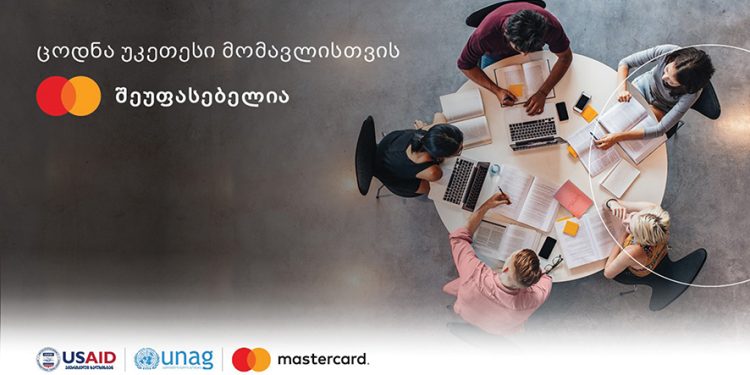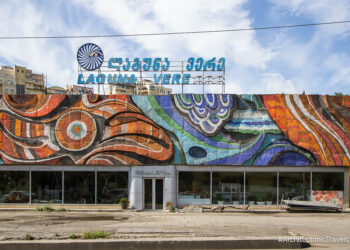Mastercard, a global leader in digital payments, is renowned for its commitment to empowering individuals and communities through valuable initiatives. One of its key focuses is enhancing financial education. In February 2024, Mastercard launched its Financial Education Project in Georgia, specifically targeting regions with ethnic and religious minorities. The project has been prospering for eight months now, making a significant impact in the community.
Mastercard is dedicated to fostering economic inclusion and prosperity among Georgia’s ethnic and religious minorities, and this transformative initiative aims to raise the level of financial literacy and empower micro, small and medium enterprises (MSMEs) and individuals, students and graduates, ensuring them access to essential resources. The Financial Education Project, implemented within the USAID ‘Unity Through Diversity’ program, by the United Nations Association of Georgia (UNAG), with the financial support of the US International Development, has become a transformative force in empowering Georgia’s ethnic and religious minority communities.
Key activities include the introduction of a basic financial education module for schoolchildren, students and representatives of small and medium-sized businesses, the creation of a financial literacy department in local libraries, the translation of an explanatory dictionary of financial terms into Azerbaijani and Armenian languages, and the strengthening of basic business management skills.
Since February 2024, the project has developed educational modules, public lectures, interactive seminars, and online resources, along with banking products. It has already attracted participants from regions including Samtskhe-Javakheti, Kvemo Kartli, Kakheti, and mountainous Adjara.

“We are proud that our financial education project has become synonymous with positive influence in Georgia,” says David Zgudadze, Regional Director of Mastercard in Georgia and Armenia. “Over the past eight months, we’ve seen firsthand how financial education empowers both individuals and businesses, especially in regions populated by ethnic and religious minorities. This initiative is in line with our broader mission to promote financial inclusion and economic growth in the country. We believe that if we give people the necessary tools and resources to make informed financial decisions, we will not only empower them at the individual level, but also contribute to the overall well-being of the country.”
Mastercard collaborates with key educational, business, and financial organizations in Georgia, including Liberty, the National Bank of Georgia, the National Library of the Parliament of Georgia, Women for Tomorrow, Society and Banks, and educational platforms like “Orjer Ori” and “22 Gradusi.” Additionally, it partners with prominent media representatives at both national and local levels.
Mastercard’s financial education project will continue until the end of the year.
*The publication was prepared within the program ‘USAID Unity Through Diversity,’ implemented by the UNA Georgia with the financial support of the United States Agency for International Development (USAID).
The views and opinions expressed in the publication are those of the authors and do not necessarily reflect the views or positions of the USAID and UNA Georgia.
By Ana Dumbadze














